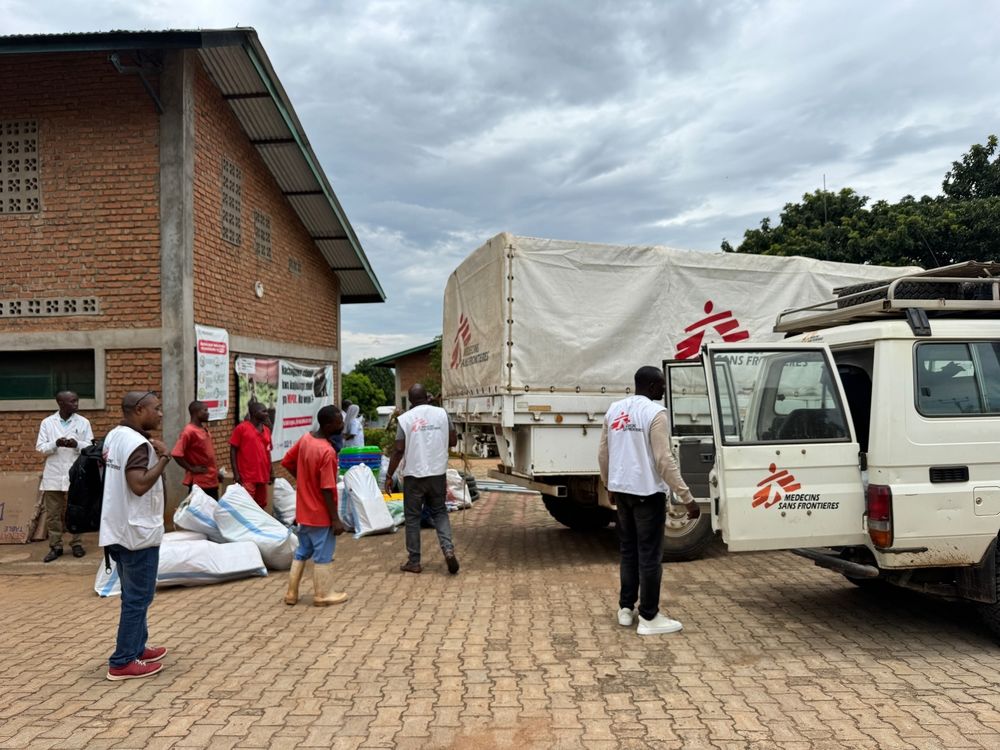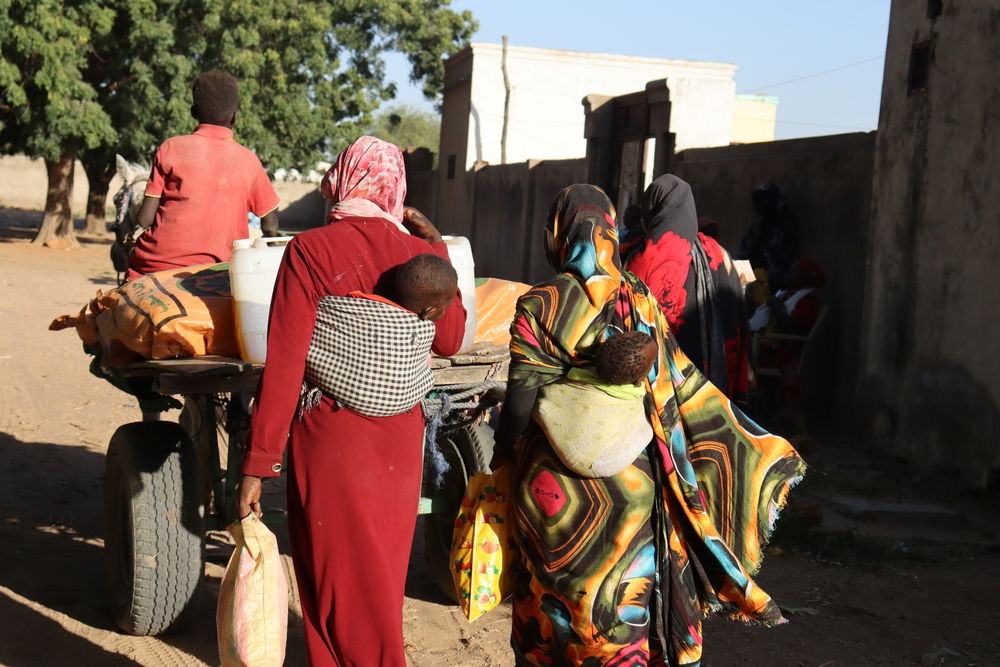We have lost everything. Our fields are overrun by armed men, and we cannot afford healthcare. I fear for my children's health.
Vianney, a local displaced villager from nearby hills around Kamanyola , South Kivu, Democratic Republic of Congo (DRC).
Since the beginning of the year, an ongoing humanitarian crisis has worsened as intense fighting between the armed group M23/Alliance Fleuve Congo (AFC) and the Congolese army (FARDC), supported by their respective allies, spilled over from the neighbouring province of North Kivu.
M23/AFC’s capture of the capital of South Kivu, Bukavu, in February marked a significant expansion of their territorial control, putting pressure on surrounding provinces.
The current frontline at Katogota in South Kivu bisects the vital road connecting the cities of Bukavu and Uvira, significantly limiting access for the communities and isolating them on either side.
Caught in the violence, many people had to flee to the nearby hills or elsewhere, forced to live in precarious conditions without access to drinking water and healthcare facilities.
In response, Médecins Sans Frontières (MSF) sent emergency teams to provide essential healthcare to communities in the cities of Uvira and Kamanyola, situated on both sides of the frontline in South Kivu.
Our efforts aim to enhance access to medical services in a region already plagued by a weakened health system, recurrent epidemics, and shortages of medical supplies.
Uvira: a city under pressure and a community in a vulnerable situation
The position of M23/AFC on Katogota, at the frontline, has been putting significant pressure on Uvira, which is under government control.
We all panicked when we heard gunfire inside the hospital. When it stopped, I asked to leave, even though my son was still sick. I didn’t feel safe.
Aisha, a mother caring for her baby son at the mpox treatment centre at Uvira General hospital.
In February, residents reported increased violence and clashes in Uvira between the Congolese army and its alleged allies, the Wazalendo fighters - a coalition of armed groups opposed to M23/AFC.
Medical facilities were not spared from gunfire, hampering patients' access to care.
MSF teams, already working in Uvira since September 2024 to respond to the mpox outbreak, were present during the February clashes.
Despite challenges, they kept supplying medical equipment and launched emergency interventions, once the security situation allowed.
Since the beginning of the fighting in the area, Uvira has hosted more than 250,000 displaced people , increasing their need for food, healthcare, and humanitarian assistance.
It is in this context that we increased our response to strengthen capacities for treating war injuries, cholera cases, and victims and survivors of sexual violence.
Dr Aurora Revuelta, MSF medical team leader in Uvira.
From February to May 2025, MSF has treated nearly 400 war-wounded people and 800 people with cholera in three treatment centres in collaboration with the Ministry of Health.
We have also repaired several drinking water points to help prevent infectious diseases.
Kamanyola: restoring healthcare access in an emergency context
We suffered in the fields where we were displaced. I lost two of my children because we couldn’t access medical care. We had to bury them like animals, without being able to give them a dignified funeral.
Jeannette*, a 28-year-old villager
On the opposite side of the frontline, the situation in the city of Kamanyola, next to Katogota, is equally complex.
This area, under M23/AFC control, has also seen its healthcare system weakened by violence.
During the initial clashes, people and families fled to the nearby hills for several weeks.
While some stability has returned to the town, allowing some communities to come back, most of the fighting continues in the surrounding hills, making access to fields impossible and increasing insecurity for residents in nearby small villages.
In response, MSF launched an emergency intervention in mid-March to support medical needs and local health structures.
Our priority was to support the general hospital and surrounding health centers, which lacked medical supplies. We strengthened the management of war injuries, provided medical equipment, and implemented sanitation activities to prevent the spread of disease.
Dale Koninckx, MSF project coordinator.
With MSF's support, 7,500 free medical consultations were conducted over eight weeks with the Ministry of Health, nearly 40% of which were for children under five, primarily for malaria, acute respiratory infections, and diarrhea.
MSF teams also improved hygiene conditions in health facilities it is supporting, including rehabilitating water tanks, emptying septic tanks at the hospital, and connecting several health centers to water.
More than 14 000 m³ of water was distributed during the intervention- a crucial effort to prevent disease spread.
A major logistical challenge, where humanitarian access is increasingly restricted
Persistent insecurity has rendered the road between Bukavu, Kamanyola, and Uvira nearly impassable, making it impossible for humanitarian organisations to move between the two sides of the frontline.
To overcome this situation, MSF has adapted by crossing various countries to deliver aid and provide care on each side.
The health situation was already precarious, but today it is even more critical. The absence of humanitarian organisations, combined with challenges in reaching the area—whether physically, logistically, or in terms of safety—adds to the complexity.
Olivier Pennec, head of MSF programs in South Kivu.
As healthcare access deteriorates due to fewer humanitarian organisations on the ground and US funding cuts, MSF remains one of the few organisations physically present and providing medical care to communities caught in this area.
*Names have been changed for safety reasons



